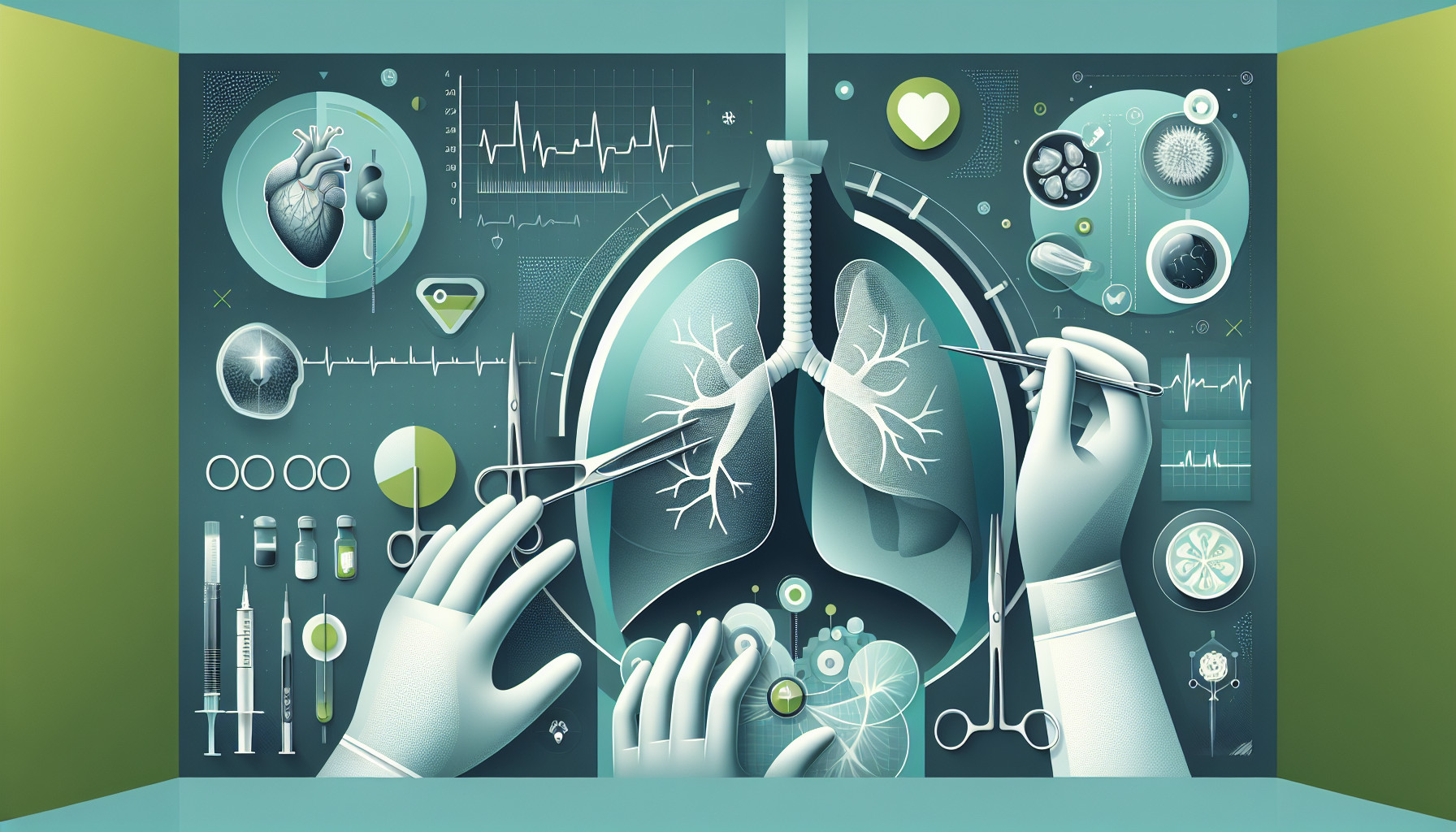Our Summary
This research paper discusses how lung transplants can be a life-saving treatment for patients who have severe respiratory problems due to COVID-19. These procedures might be complicated before the transplant, but results after the transplant are generally very good, especially when the procedure is done by expert medical centers.
FAQs
- Can a lung transplant be a potential treatment for patients with respiratory failure due to COVID-19?
- What are the post-transplant outcomes for patients who undergo a lung transplant due to COVID-19 related respiratory failure?
- How does the experience of the medical center performing the transplant affect the success of a lung transplant in COVID-19 patients?
Doctor’s Tip
One helpful tip a doctor might tell a patient about lung transplant is to follow all post-transplant medication and treatment regimens diligently, as adherence is crucial for successful outcomes and preventing complications. It is important for patients to communicate openly with their medical team about any concerns or side effects they may be experiencing. Additionally, maintaining a healthy lifestyle, including regular exercise and a balanced diet, can help support overall lung health and improve recovery after a lung transplant.
Suitable For
Patients who are typically recommended for a lung transplant are those with respiratory failure related to conditions such as chronic obstructive pulmonary disease (COPD), cystic fibrosis, idiopathic pulmonary fibrosis, or pulmonary hypertension. In the case of coronavirus disease-2019 (COVID-19), patients with severe acute respiratory distress syndrome (ARDS) who do not respond to other treatments may also be considered for a lung transplant. These patients must undergo a thorough evaluation process to determine their eligibility for the procedure, including assessments of their overall health, lung function, and ability to tolerate the transplant surgery and postoperative care. Transplant centers with experience in performing lung transplants are best equipped to provide optimal outcomes for these patients.
Timeline
Before lung transplant:
- Patient is referred to a lung transplant center by their pulmonologist
- Patient undergoes extensive evaluation to determine eligibility for transplant, including medical, psychological, and social assessments
- Patient is placed on the transplant waitlist and may receive a temporary mechanical support device, such as a ventilator or ECMO, while waiting for a donor organ
- Patient undergoes pre-transplant conditioning and education to prepare for surgery and recovery
After lung transplant:
- Patient undergoes the lung transplant surgery, which typically takes several hours
- Patient is closely monitored in the intensive care unit (ICU) for several days to weeks post-transplant
- Patient begins a rigorous rehabilitation program to regain strength and lung function
- Patient is closely monitored for signs of rejection or infection and must adhere to a strict medication regimen
- Patient undergoes frequent follow-up appointments and testing to monitor the success of the transplant and adjust medications as needed
- Patient gradually resumes normal activities and may experience improved quality of life and increased exercise capacity
Overall, the lung transplant process is a challenging but potentially life-saving journey for patients with end-stage lung disease, and requires ongoing dedication to maintain the health of the transplanted organ.
What to Ask Your Doctor
- Am I a candidate for a lung transplant?
- What are the risks and benefits of a lung transplant for my specific condition?
- How long is the wait time for a lung transplant?
- What is the success rate of lung transplants at your center?
- What is the recovery process like after a lung transplant?
- What medications will I need to take after the transplant?
- What are the potential complications or side effects of a lung transplant?
- What lifestyle changes will I need to make after a lung transplant?
- How often will I need to follow up with you after the transplant?
- Are there any alternative treatments or options for my condition other than a lung transplant?
Reference
Authors: Avella D, Neumann H, Bharat A. Journal: Clin Chest Med. 2023 Mar;44(1):191-199. doi: 10.1016/j.ccm.2022.11.002. Epub 2022 Nov 4. PMID: 36774164
